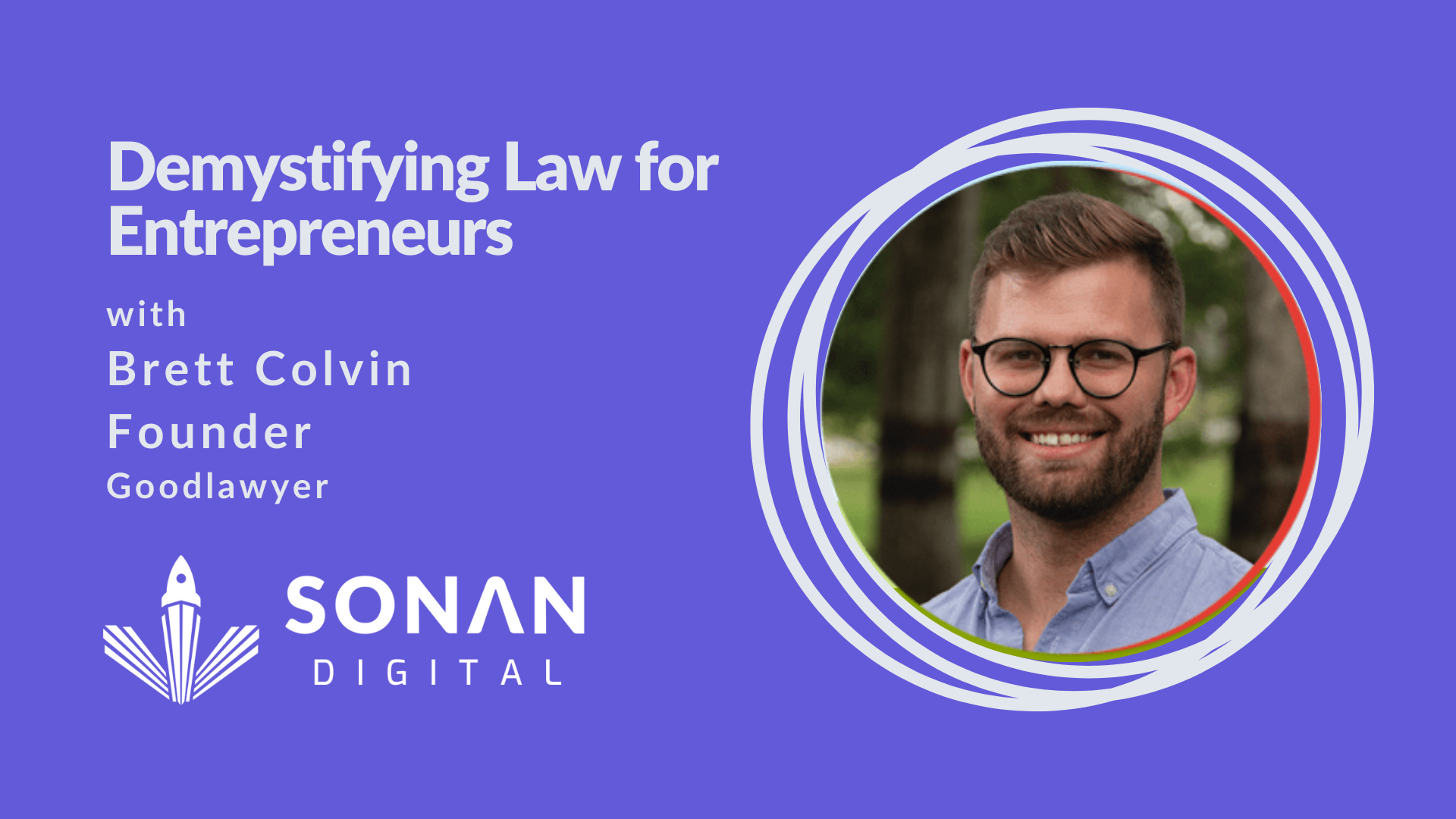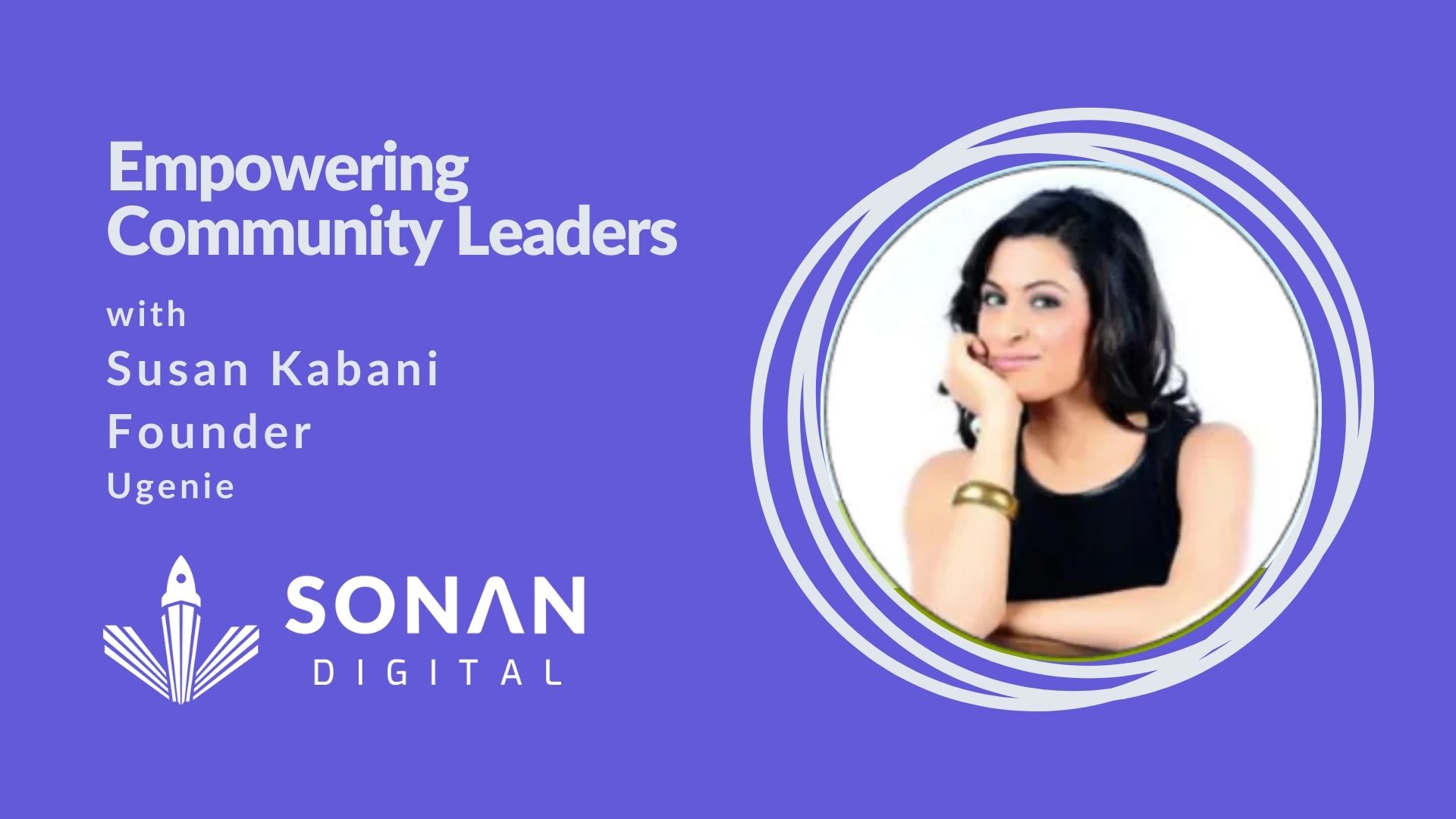The problem is two-fold. The more obvious one is that law firms are expensive and scary, and people avoid calling them. I can’t tell you how many times I’ve spoken to a founder, and they avoid calling law firms because last time they did — they got a $400 bill. Or they put through a bigger transaction and get a bill that’s $18k, when they expected it to be $5k. There are just these unpleasant situations where founders avoid calling lawyers all the time.
– Brett Colvin, Goodlawyer
As part of our Founder Focus series featuring conversations with up-and-coming SaaS companies, we had the pleasure of interviewing Brett Colvin, Founder of Goodlawyer.
Brett is a seasoned corporate lawyer who currently resides in Calgary, Canada. Early on in his career, Brett realized how broken the traditional law firm structure was. From opaque billing practices to incentives for lawyers to spend more time than necessary, Goodlawyer aims to be the solution to that problem. It’s providing Canadian startups and businesses legal services without the pain. Brett has turned his company from a scrappy startup to a leading legal services provider with over 30+ employees and a network of lawyers that spans across Canada.
Thank you so much for joining us! Our readers would love to know more about your backstory. How did you get started on the path you are on today?
I was always a little entrepreneur since I was a little kid. I was always starting businesses, whether it was mowing lawns or selling golf balls. I had a chance to run a painting franchise business right before law school. I saw some good success with that, made some decent money, and learned that I loved running a business. That was the largest business I embarked on and loved it.
I learned a great deal in law school. Notably the lack of access to law across North America, where 77% of cases are swept under the rug due to lack of adequate access. It also felt crazy, as there were only a handful of big firm jobs to go around. So, on the one hand you had over three-fourths of legal needs not being handled by lawyers— and on the other, you had the feeling that there were too many lawyers. So right from the get-go, things seemed a bit broken. That planted an important seed in me.
After law school, I went the big firm route, and got to see how inefficient the process was. Even across some of the largest law firms across the country, where you expect things to be modern and high-tech, the systems based on billable hours just incentivized the wrong types of behaviours. The professionals were incentivized to take longer and to resist technological adoption. Two years ago, I decided to make the jump and left the big firm.
Tell me a bit more about the early days of your team and how you got started with Goodlawyer.
I started with a co-worker that I was with at the firm. He left the project about a year in—his risk tolerance was not quite at my level. I’m kind of an oddball compared to other lawyers in that sense. My other two cofounders, Tom, our Chief Product Officer, and Parker, our Chief Technical Officer, have been here since day one. In the early days, we were working on it from my apartment. I was working on Goodlawyer after work, in the evenings, back when it was in the ideation phase. It got to a point where we were ready to go. We found a bit of capital to kick things off, and in February of 2019, I made the leap.
What was the source of that initial capital out of curiosity?
It was someone in my network. That painting franchise I mentioned, I had built it with a close friend of mine who I grew up with playing soccer. When I started getting serious about Goodlawyer, he came to me saying he wanted to get involved. Him and his father came in with an initial seed of $250k. Without the Richies, I don’t know where Goodlawyer would be. I’ll always indebted to them and was lucky to have them as the first investors.
Beyond that initial seed round, have you taken on any additional funding?
The very early days, it was self-funded, paying a part-time designer and programmer with my salary. Now, we are over 25 people, and the burn is real, but we have a lot of great investors. To date, we’ve raised over $1.5M and plan to raise another round in another quarter or two. We’re not trying to build a little platform in Canada, we have global ambitions. To do that, we’ll require some significant investment. Some added fuel on the fire. The market opportunity we’re chasing makes it very attractive to those investors.
Your office in Calgary looks great!
Thank you! We’re glad to have a home base and be able to bring people together. Currently, we’re fully hybrid, so some days the office is bustling while others it’s quieter. We’re really aiming to build a culture that people that don’t want to leave.
Do you plan on staying centered around your Calgary headquarters?
That’s an interesting question. When I started Goodlawyer, the start-up scene in Calgary was very early, kind of quiet. Over the past three years, there’s some real momentum. Folks are building companies, investing in companies. The government here is turning its attention to diversification unlike ever before. For me the best outcome would be to keep HQ in Calgary forever, building a global business that could be headquartered in my hometown.
We’ll see what the future holds. The Ontario market is growing for us rapidly and we believe we’ll need to have a physical presence in Toronto at one point. We’ll be making some real noise this year in Ontario, attending Collision.
Currently, we see our presence in Calgary as an advantage, with a lower cost of living, tight-knit culture, and the ability to really leave a stamp on the city.
You seem to have a great founding team with individuals skilled in law, product, and development. Tell me a bit more about the early days.
I do bring an element of the legal expertise, having practised as a corporate lawyer for four plus years, but frankly that’s not the main value I bring. My original cofounder was the expert legal mind. Josh Weinberger, who joined a year ago is now our chief legal officer.
When it comes to product, Tom and Parker have done a great job. With little involvement from me, they’ve built a beautiful product. It’s hard to get one person with both skillsets of the developer and designer. Tom serves as the bridge between me and Parker a lot of the time, connecting business and technical realities. We’ve got this far, and it speaks to the strength of our match.
Nobody has quit Goodlawyer up to this point. We’re not paying the highest salaries in town, but like to use equity compensation to align long-term interests. We strive to build a place where people want to work. In this market, where talent is scarce, that’s been one of our strongest attributes. A lot of the folks that are on the team I’ve known for a while, and so patience is key. Using long-term equity to align interests has been paramount to our success.
Things in a start-up move fast and it’s often very hard. You’re playing the game on max difficulty —so to say. But by aligning long-term interests, you’re able to really change the game and build that long-term culture.
I love the motto “Go Build It”. Tell me a bit more about the problem you’re looking to solve with Goodlawyer.
The problem is two-fold. The more obvious one is that law firms are expensive and scary, and people avoid calling them. I can’t tell you how many times I’ve spoken to a founder, and they avoid calling law firms because last time they did — they got a $400 bill. Or they put through a bigger transaction and get a bill that’s $18k, when they expected it to be $5k. There are just these unpleasant situations where founders avoid calling lawyers all the time.
As a founder, I know the importance of legal and how it can be used to elevate one’s business. One example is equity compensation. For us it reduces the cash amount these folks are making but it builds in purpose and culture. If you don’t know how to use equity as a tool in a start-up, you’re already at a disadvantage. That’s the founder side of the equation.
On the lawyer side, you have all these lawyers that are miserable. There are a bunch of lawyer jokes out there about how much lawyers are truly suffering. Going back to the painting franchise, we did a lot of lawyer houses. Speaking to them, they’d tell me, “You should keep painting, being a lawyer sucks.” They advised me to not become a lawyer. 50% of lawyers leave the profession after the first five years. The kicker is that many of those lawyers think about doing their own thing. For them, if they’re not entrepreneurs, starting their own firm is scary. They’re not particularly good at customer support, accounting, marketing, sales. That’s where we focus. In the U.S., based on a stat from Clio, lawyers only generate revenue with 20% of their workweek. 80% of their week, they’re trying to sell billable hours. We help them focus on law, while we assist with the other facets.
One example, an average price for an employment agreement at a law firm is $980. On Goodlawyer it’s $480. Even at $480, the lawyer is making more money on Goodlawyer because of how large that typical law firm cut is. There’s just so much fat baked in there. Our cut is 20%, 10% for Goodlawyer Pro. When you’re building a marketplace, another key consideration is fragmentation. It’s hard for me to find a profession that is more fragmented than law. The biggest law firm in the world has about 1% of the legal market. The biggest firms in the world employ 3000 to 4000 lawyers. If you’re running a small firm or a solo practice, it’s hard to get noticed. We’re really driving towards transparency and trust-building.
We’re obsessed with NPS and the customer experience. We’re sitting at a 90 and the average firm is sitting at a 26 — we’re able to build trust faster.
Looking at networks and the cold start problem, what came first, the chicken or the egg? Tell me a bit more about the start of getting things off the ground.
Great question. When we first launched the product, I would force my friends and their friends, if they needed anything, to use the platform. I opened my own little law firm and kept practicing for 6-7 months before things caught on and we added lawyers in Toronto, Vancouver, and Calgary through cold outreach. Then from there we were able to start building demand further. So, to answer your question, I don’t know if I’m the chicken or the egg, but that’s how we got things going for founders.
We started providing a compelling value offering from there, helping lawyers streamline their marketing and deliver their services. The secret sauce on top of that is the community we’ve built. We have an insanely busy Slack channel with a bunch of solo lawyers, where lawyers can ask for advice and info from one another. It was totally by accident as well, we built the Slack for the first ten lawyers, and it’s just continued to grow from there.
Starting a business is often a road filled with challenges. Tell me a bit more about the largest challenge you’ve overcome to date.
Figuring out who our customer is. Before we settled on the corporate side of things, we were doing everything from family law, real estate, to immigration. We got a bit of traction trying all, but realized we bit off too big a chunk to chew.
One of our best moves, was when we just cut everything and started focusing in on entrepreneurs and business owners. We could build our product tailored to a specific audience and altered our content. It makes so much sense, since helping entrepreneurs is what I’m passionate about. Even tailoring it to business, we wanted to niche down further. Helping a painter with a lien is very different than helping cofounders with their initial agreement. We narrowed it down again, we realized our best customers are start-up founders. The fact that we can help founders innovate goes a long way.
What are you seeing success with when it comes to marketing and sales?
We’re seeing a lot of success when it comes to customer education. Top of funnel focused content. We’re also seeing a long tail of founders that aren’t ready to launch yet, but need education. In a realm like law, there is a lot of uncertainty and confusion — it helps us build trust. There’s a lot of shitty content out there, but we strive to make pieces that are enjoyable to watch and read. It’s not like selling sneakers or a meal, there’s a huge trust element. We’re trying to find you the perfect lawyer that you love working with. The Goodlawyers on the platform are aiming to fill that void.
Thanks for chatting with us today, Brett. Great learning about the platform. We look forward to watching you grow and staying in touch. What’s the best place for people to connect with you?
LinkedIn is a great place for connecting with me personally. In terms of Goodlawyer, Goodlawyer.ca, Everyone who signs up gets a consultation or few pages of contract review at no cost. Come check it out and take it for a spin!
-1024x320.png)




